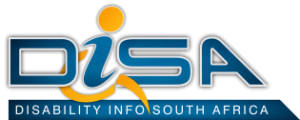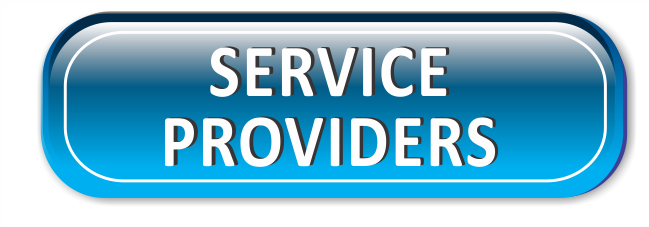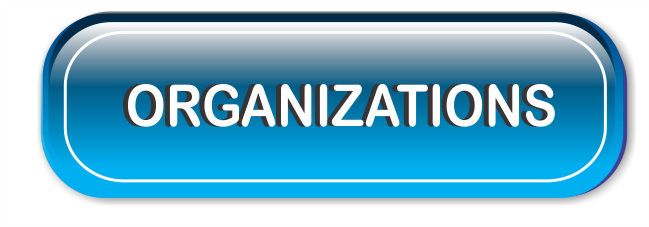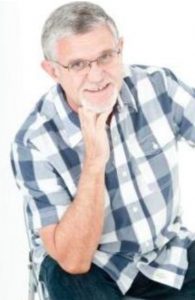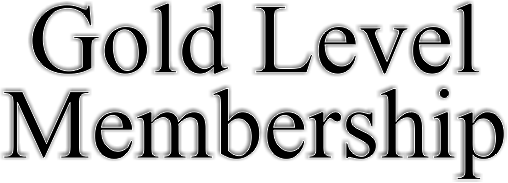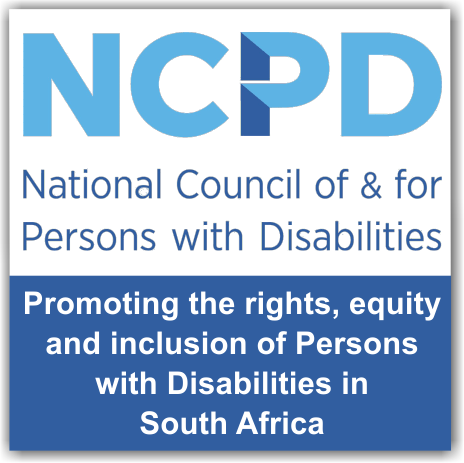Organizations
Introduction
Since the International Year of Disabled Persons in 1981, persons with disabilities have organized themselves into their own organizations all over the world. These organizations are sometimes called Disabled People's Organizations or DPOs. DPO's are those controlled by a majority of persons with disabilities (51%) at the board and membership levels. The role of these organizations includes: providing a voice of their own, identifying needs, expressing views on priorities, evaluating services and advocating change and public awareness and Some Organizations also provide or sell equipment.
DPOs believe that persons with disabilities are their own best spokespersons and their role has been and is fundamental for the human rights movement of persons with disabilities. There are a variety of different types of disabilities that have there own organizations & these include The Deaf or persons with Hearing Impairments.
Types of Disability Organizations in South Africa
There are a wide range of advocacy and self-help organization which exist in South Africa. They include organisations such as the overtly political Disabled People South Africa, aligned with the ruling African National Congress, National Council of and for Persons with Disabilities (NCPD) and DiSA, as well as single-issue national organisations such as the South African National Deaf Association (SANDA), to name just a few.
There are 3 different main types of Disability organisations in South Africa:
- Cross-disability organizations, such as the National Council of and for Persons with Disabilities (NCPD) and Disability info South Africa (DiSA), which represents the interests of all persons with disabilities in South Africa.
- Diagnostic-focused Organizations such as the South African National Deaf Association (SANDA) and DeafSA, which represent a medical diagnostic group, such as The Deaf, Hearing Impaired or Hard of Hearing. Within these DPOs that represent medical diagnostic groups, are provincial organisations to assist it's members in a particular province and are associated with the The Deaf Federation of South Africa (DeafSA) , but the do assist members in specific provinces, such as DeafSA Western Cape.
- Population-specific organizations, represent a population group, such as the South African Deaf Women Association.
1. Cross Disability Organizations
Cross-disability organizations represent the interests of all persons with disabilities in South Africa, and include the National Council of and for Persons with Disabilities (NCPD) and Disability info South Africa (DiSA).
National Council of and for Persons with Disabilities (NCPD)
The NCPD is a NGO with a footprint throughout South Africa that plays a lobbying & advocacy role when it comes to the rights of persons with disabilities. "We're an umbrella body coordinating the advancement of the rights of persons with physical disabilities in accordance with the White Paper on the Rights of Persons with Disabilities, the UN Convention on the Rights of Persons with Disabilities and more. We have nine provincial Associations for Persons with Disabilities with numerous projects and branches that focus on rural development as well as social."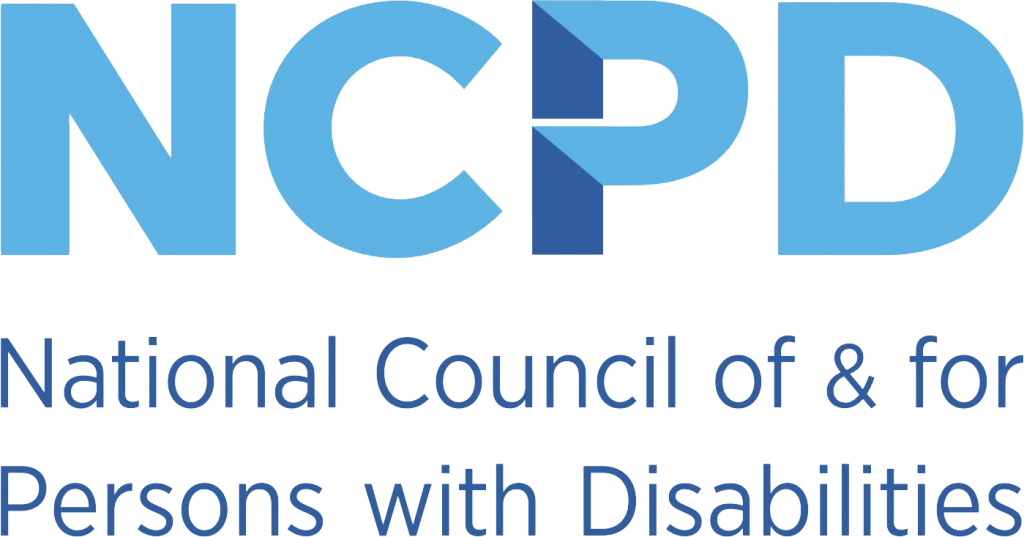
The The National Council of and for Persons with Disabilities does advocacy work and services leading to an equitable and inclusive society. "We are affiliated to the South African Disability Alliance, as well as Rehabilitation International. Our programmes cover the whole of South Africa."
Services
The National Council of and for Persons with Disabilities offers a wide variety of different Services, they include:
Job Placement & Skills Development: The National Council of and for Persons with Disabilities have programs in place that aid persons with disabilities, to find jobs & acquire skills that they my need in the workplace. "We offer BBBEE advice and services related to persons with disabilities, including: Job placement, Skills development, Preferential procurement, Ownership and supply chain development."
Workplace Policy & Disability Equity Training: The National Council of and for Persons with Disabilities offers Disability Equality Training courses to address the need for information about the reality of disability. Training is tailor made for every sector, including: Tourism, Tertiary Education, Banking, Mining and more. Through training they will find ways to challenge the organizational behavior which reinforces negative myths and values and which prevents disabled people from gaining equality and achieving full participation in society. Training is done by an expert well trained team of persons with disabilities.
Va Va iYouth (Children With Disabilities): Vava iYouth is a project of the National Council of and for Persons with Disabilities (NCPD). As a youth wing of the NCPD, Vava iYouth is aimed at ensuring inclusion and equity for children and young persons with disabilities in South Africa in every facet of their lives and livelihoods. We serve all youth with disabilities irrespective of impairment, race, language, ethnicity, sexual orientation, religion, or nationality.
Raising Awareness: Living in an age where information is for the most part a click away to a large part of society, should mean that persons with disabilities enjoy all their non-disabled counterparts do, but despite democracy and the information age, persons with disabilities often still find themselves on the side-line when it comes to securing employment or even just having access to enjoy a sports match or theatre production. The need for raising awareness of impairment, disability and related matters, we aim to raise the level of awareness about disability related issues through various initiatives.
Economic Empowerment: We go to certain areas to ascertain if the information we have on-hand is correct and/or to be up-to-date with the current situation in those areas. The same goes for projects but with projects we also need to see how sustainable these projects are and if they need assistance to either stay the course or change the project toward better outcomes for the participants and beneficiaries of these projects.
Training: The NCPD is proud to be in a position to offer various SETA accredited training courses ( short course, learnerships and internships) together with corporate partners whom then get their BBBEE POINTS for the DTI scorecard. We also do short training of Professionals in the Services and Health profession , for which these professionals get CPD points. The courses for architects, and other professionals is not accredited for CPD points. Other training includes Caregiver training for carers of children or adults; Governance training; Fundraising training; Disability Equity training; Reasonable accommodation; Inclusive design; Various impairments and the implications; Drivers of persons with disabilities; Human Rights and advocacy; Assistive device repairs & Transport and driving training. The majority of training sessions can be tailor-made to suit your needs.
Universal Design & Access: Persons with disabilities are excluded from many events, services, information, communication, products and venues, due to all users were not considered during the planning phases. The National Council of and for Persons with Disabilities can assist to prevent this from happening by applying Universal Design Principals during the design phase.
Hearing loss training and empowerment activities: Hearing loss can happen to anyone and NCPD would like to address the lack of services and support for this marginalised group through specific training and empowerment activities.
We provide the following to corporates:
- To reach full potential in the workplace despite deafness or hearing impairment.
- Communicating with deaf or hearing impaired employees in the work place.
- From Paper to Practice: The White Paper on the Rights of Persons with Disabilities and the reasonable accommodation of persons with impairments/disabilities. (Accredited with 6 CPD points from HPCSA)
Workshops for Professionals working in the field of hearing loss and disability:
- The Protocol and Guideline for identifying functional needs of a hearing impaired or deaf adult ( accredited with 5 CPD points from HPCSA)
The following session is available to individuals, family members, NGO’s and NPO’s (including retirement centres):
- Making the most of life despite hearing loss.
Please click on the following links for more information on hearing loss:
- South African Hearing Institute ( SAHI ) www.sahi.org.za
- The Association for Hearing Loss Accessibility and Development (AHLAD) www.ahlad.org
- Road to independence www.roadtoindependence.co.za
For more information contact Michele Tonks: michele@ncpd.org.za or Fanie du Toit: fanie.dt@ncpd.org.za
- Specialist of Hearing impairment & deaf affairs for the National Council of and for Persons with Disabilities.
- Founder member of the Association for Hearing Loss Accessibility and Development (www.ahlad.org)
- Adult Education Practitioner
- Presenter of “Leefwêreld van die Gestremde” on RSG and other community and national radio stations.
Fanie experienced severe hearing loss for many years, but after 29 years had the miracle of being able to hear again after bilateral cochlear implants in 2011.
Other Services: Other Services: The National Council of and for Persons with Disabilities can also supply information and assist with a variety of other Services, including: Universal Design and Access Audits; Disability Equity Training, Workplace services such as Job Placement, reasonable accommodation and Policy Review, Internships and training; as well as Entrepreneurs with disabilities; Disability information and children’s programmes; Fund Raising and Referrals of persons with disabilities needing our services. Contact us for more information on: Tel: +27 11 452 2774 or Email: therina@ncpd.org.za or read the article below about the Fund Raising Partnerships that the National Council of and for Persons with Disabilities are involved in.
Fund Raising Partnerships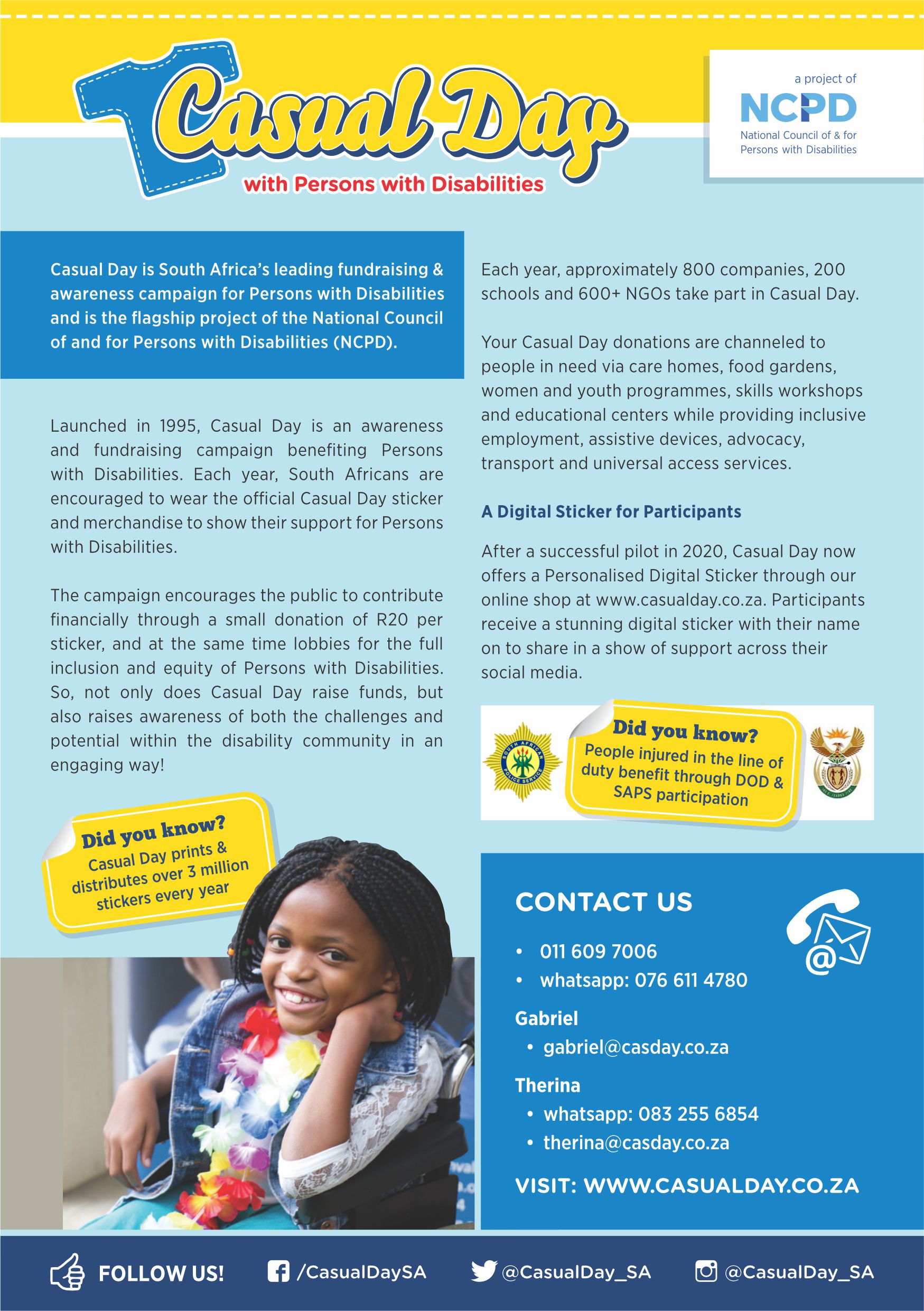
The National Council of and for Persons with Disabilities organize and run a number of fun raising projects to help raise funds including "Casual Day" and the "Nappy Run".
"Casual Day: is South Africa’s leading fundraising & awareness campaign for persons with disabilities and is the flagship project of the National Council of and for Persons with Disabilities (NCPD). Casual Day was launched in 1995 and is an awareness and fundraising campaign benefiting persons with disabilities. Each year on the first Friday of September, South Africans are encouraged to go to work or school dressed differently and to wear the official Casual Day sticker to show their support for persons with disabilities."
"Nappy Run: is a 5km Fun Run which takes place at the Joburg Zoo every year coinciding with National Children’s Day, the purpose of the Nappy Run™ campaign is to educate the public on the violation of rights of our country’s most marginalized and vulnerable group of people – children with disabilities and to appeal to the public for online donations which go towards the purchase of nappies for children with disabilities.
The event is organised by the National Council of and for Persons with Disabilities (NCPD) and forms part of the NCPD’s observation of South Africa’s Disability Rights Awareness Month (DRAM) in November. The Nappy Run campaign runs until 3 December to coincide with the International Day of Persons with Disabilities (IDPD), while DRAM also culminates on that same day. For more information about the Nappy Run™ fun run, or to make a donation, visit www.nappyrun.org.za.
Disability info South Africa (DiSA)
Disability info South Africa (DiSA) is a Non Profit organization of and for Persons with Disabilities (NPO Reg. 256-154). DiSA is a comprehensive One-Stop Access Solution that strives to promote equality for persons with disabilities in South Africa, through facilitating easy access to essential information and advocating and providing services to improve access to the built and digital environment.
2. Diagnostic Focused Organizations
Diagnostic-focused organizations are those DPO's such as the South African National Deaf Association (SANDA) and DeafSA, which represent a medical diagnostic group, such as The Deaf, Hearing Impaired or Hard of Hearing.
South African National Deaf Association (SANDA)
South African National Deaf Association is a leading independent not for profit, public benefit, national advocacy and consumer organization, registered both as a section 21 company and Non-Profit Organisation (NPO). SANDA was founded in 2004 and is managed by Deaf people and represents more than 4 million Deaf and hard of hearing South Africa's. SANDA is the human rights and advocacy organisation of, by and for Deaf people, its core business is advocacy. The organisation complements the work of government and provides a good basis for partnership particularly in relation to programmes in advocacy, awareness and public education; Deaf education, skills development and scholarship, economic empowerment; ICT; Deaf women and Deaf youth development programmes as well as mainstreaming of Deaf people in society.
The Deaf Federation of South Africa (DeafSA)
"The Deaf Federation of South Africa (DeafSA) acts as the national research, information and community action organisation on behalf of ± 1.5 million South Africans that are culturally and linguistically Deaf, hard of hearing and Deafblind. DeafSA was formerly known as the South African National Council for the Deaf (SANCD), which was founded in 1929. DeafSA promotes the interests of the Deaf and hard of hearing effectively on national level in South Africa. DeafSA’s national constitution and activities are, therefore, aimed at all people who are Deaf, hard of hearing or Deafblind. DeafSA embraces diversity and inclusiveness as core values in achieving its mission. It is the philosophy of DeafSA that diversity encompasses a wide range of human abilities and perspectives, they are committed to building and maintaining an inclusive environment where differences of opinions, beliefs, and values are sought, listened to, respected, and valued. Through inclusiveness, DeafSA is committed to expanding membership, participation, and leadership that reflect the diversity of the South African Deaf community."
Provincial Organizations
Within these DPOs that represent medical diagnostic groups, are provincial organisations to assist it's members in a particular province. An example of this is:
DeafSA Western Cape: which are associated with DeafSA along with 8 other Deaf Provincial Federations (DPFs) throughout South Africa. DeafSA along with 9 provincial organizations facilities services to the South African Deaf, Deafened and hard of hearing communities in the Western Cape and other provinces.
3. Population Specific Organization
Population-specific organizations are those DPOs which represent a specific population group, such as the South African Deaf Women Association.
The South African Deaf Women Association: provide a wide variety of Services country wide. South Africa is a vast country and complex, Deaf women are scattered throughout the country, which makes networking critically important for exchanging of information, empowerment and enhancement in the quality of lives for all Deaf women. Their Services that The South African Deaf Women Association provide include: Advocacy, lobbying and awareness; Capacity building, training, and empowerment; Networking and strategic partnerships; Information, communication and technology (ICT); Equitable access to service delivery and Deaf women education.
Sports Organizations
There are also a wide variety of Sports Organizations, including the:
- International organizations such as the The International Committee of Sports for the Deaf (ICSD).
- National sports organizations that govern abeld bodied sports, as well as some disability sports, such as The South African Sports Confederation and Olympic Committee (SASCOC).
- South African Deaf Sports Federation, which governs some sports for The Deaf or persons with Hearing Impairments.
- The Provincial Organizations which governs provincial sports for The Deaf, or persons with Hearing Impairments in particular provinces.
- Sports Club Organizations which offer either a single or a variety of sports in a particular province or city in South Africa.
1. The International Committee of Sports for the Deaf (ICSD)
The International Committee of Sports for the Deaf (ICSD) is the main governing body responsible for the organization of Deaflympics and other World Deaf Championships. It was founded in 1924 and is now approaching the century mark of being the organization behind the building, evolving and fortifying the tradition of inviting deaf/hard of hearing elite athletes from all of the world to come together not only to compete in their respective sports, but to also develop comradeships between their countries.
The Deaflympics (previously called World Games for the Deaf, and International Games for the Deaf) are an International Olympic Committee (IOC)-sanctioned event at which deaf athletes compete at an elite level.
2. The South African Sports Confederation and Olympic Committee (SASCOC)
The South African Sports Confederation and Olympic Committee (SASCOC) is the National Olympic Committee (NOC) and National Paralympic Committee (NPC) for South Africa, and are the responsible body for South Africa at the Commonwealth Games. SASCOC is also responsible for high-performance sport in the country and coordinates the relationship with various international sports federations. They not only help look after all our various National Federations who are affiliated to them, but are responsible for awarding National Protea Colours to athletes who have met the criteria to represent South Africa in different sporting codes, including:
3. South African Deaf Sports Federation
The SADSF currently promotes 10 sport codes, namely: Athletics; Cricket; Soccer; Netball; Volleyball; Golf; Table Tennis; Swimming; Squash and Cycling. Most of these codes have their own structures and constitutions and are, as provided for in the SADSF Constitution, affiliated to the SADSF which is a National controlling body that facilitates the administration and coordination of each of these 10 Sport Codes to the highest level of excellence. SADSF further has 9 constituted Provincial structures that are responsible for the identification and development of sporting talent for Deaf at grassroots level and also for the administering and coordination of sport for the Deaf at a Provincial level. South African Deaf Games take place biannually, depending on the availability of funds.
4. Provincial Sports Associations
There are various provincial Deaf cricket teams such as:
The Gauteng Deaf Cricket: which was founded in 1975 with the aim of becoming the flagship provincial Deaf Team of South Africa. They also one of the oldest Provincial teams in Deaf Cricket in South Africa and are actively involved in grass roots development.
5. Sports Club Organizations
Some Sports Club Organizations are also available, which offer either a single or a variety of sports in a particular province or city in South Africa, these clubs may include "Disabled" and Abled Body athletes or just "Disabled" athletes. There are a variety of these clubs in South Africa, including:
The Differently Abled Cricket Club: which is an open cricket club for the differently abled cricket players, which includes the Blind, Deaf, Intellectually Impaired (SID and MID) and Physically Disabled. We are the only club of this kind in South Africa and we would like to make it our goal in getting other regions to follow suit! "
If you would like to find out more about these & other Sports Organizations or the sports that are available for you, you can visit our Sports Page:http://disabilityinfosa.co.za/hearing-impairments/sport-for-hearing-impaired/.
Thank you for visiting our website, we hope that it will be helpful, please feel free to visit our Facebook Page to leave a comment.
